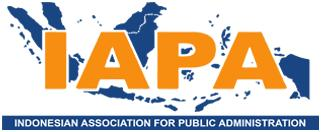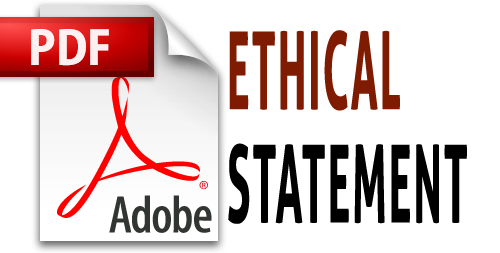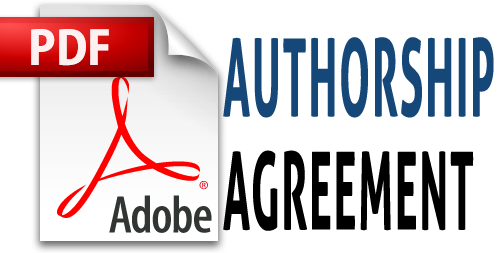Customer Satisfaction and Logistics Company Reputation through Supply Chain Disruption Management
Abstrak
Operations and supply chains of logistics companies can be disrupted by unplanned or unanticipated events. The purpose of this study is to determine the description of SCDM, customer satisfaction, and reputation of logistics companies in Jakarta, and to confirm the direct and indirect effects of SCDM on customer satisfaction and reputation of logistics companies in Jakarta. This research uses quantitative research methods. This study uses a questionnaire with a Likert scale with intervals of 1-9. Data were collected through questionnaires and analyzed using Partial Least Square (PLS). The findings of this study are (1) SCDM positively affects customer satisfaction; (2) SCDM affects corporate reputation directly and through customer satisfaction; and (3) customer satisfaction affects corporate reputation. Logistics companies can focus on the flexibility aspect of SCDM to adapt quickly to changes in demand or supply activities. In strengthening customer satisfaction, logistics companies need to emphasize the communication aspect, especially in ensuring the effectiveness of communication with consumers so that the level of customer satisfaction can be maintained and even improved. Reputation logistics companies can focus on the innovation aspect by utilizing advanced technologies such as artificial intelligence and automation to improve the efficiency and accuracy of overall supply chain management.
Kata Kunci
Teks Lengkap:
PDF (English)Referensi
Agyabeng-Mensah, Yaw, Ebenezer Afum, and Charles Baah. 2022. “Green Corporate Reputation and Innovation: The Role of Non-Supply Chain Learning and Green Supply Chain Knowledge.” International Journal of Emerging Markets ahead-of-print (ahead-of-print). https://doi.org/10.1108/IJOEM-08-2021-1277.
Altay, Nezih, and Raktim Pal. 2022. “Coping in Supply Chains: A Conceptual Framework for Disruption Management.” The International Journal of Logistics Management 34 (2): 261–79. https://doi.org/10.1108/IJLM-05-2021-0305.
Anwar, S. N. (2013). Manajemen Rantai Pasokan (Supply Chain Management): Konsep dan Hakikat.
Bantacut, T. (2018). LOGISTIK 4.0 dalam Manajemen Rantai Pasok Beras Perum BULOG. Jurnal Pangan, 27(2), 141-154.
Barreto, L., A. Amaral, and T. Pereira. 2017. “Industry 4.0 Implications in Logistics: An Overview.” Procedia Manufacturing, Manufacturing Engineering Society International Conference 2017, MESIC 2017, 28-30 June 2017, Vigo (Pontevedra), Spain, 13 (January): 1245–52. https://doi.org/10.1016/j.promfg.2017.09.045.
Blom, Tanja, and Wesley Niemann. 2022. “Managing Reputational Risk during Supply Chain Disruption Recovery: A Triadic Logistics Outsourcing Perspective.” Journal of Transport and Supply Chain Management 16 (0): 13. https://doi.org/10.4102/jtscm.v16i0.623.
Brandtner, Patrick, Farzaneh Darbanian, Taha Falatouri, and Chibuzor Udokwu. 2021. “Impact of COVID-19 on the Customer End of Retail Supply Chains: A Big Data Analysis of Consumer Satisfaction.” Sustainability 13 (3): 1464. https://doi.org/10.3390/su13031464.
Burity, Jasminea. 2021. “The Importance of Logistics Efficiency on Customer Satisfaction.” Journal of Marketing Development and Competitiveness 15 (3): 26–35.
Butt, Atif Saleem. 2021. “Strategies to Mitigate the Impact of COVID-19 on Supply Chain Disruptions: A Multiple Case Analysis of Buyers and Distributors.” The International Journal of Logistics Management ahead-of-print (ahead-of-print). https://doi.org/10.1108/IJLM-11-2020-0455.
Chamekh, Marwa, Mohamed Hamdi, and Sadok El Asmi. 2017. “A New Architecture for Supply-Chain Management.” In 2017 14th IEEE Annual Consumer Communications & Networking Conference (CCNC), 77–82. https://doi.org/10.1109/CCNC.2017.7983085.
Chen, Chih-Jou. 2018. “Developing a Model for Supply Chain Agility and Innovativeness to Enhance Firms’ Competitive Advantage.” Management Decision 57 (7): 1511–34. https://doi.org/10.1108/MD-12-2017-1236.
Chen, H. Y., Das, A., & Ivanov, D. (2019). Building resilience and managing post-disruption supply chain recovery: Lessons from the information and communication technology industry. International Journal of Information Management, 49, 330-342.
Cleary, Shannon, and Carolan McLarney. 2021. “How Logistics Is Evolving: Why It Is Appropriate for Today and the Next Decade.” IUP Journal of Supply Chain Management 18 (1): 7–24.
Dash, Rupa, Mark McMurtrey, Carl Rebman, and Upendra K. Kar. 2019. “Application of Artificial Intelligence in Automation of Supply Chain Management.” Journal of Strategic Innovation and Sustainability 14 (3): 43–53.
Dolgui, Alexandre, and Dmitry Ivanov. 2021. “Ripple Effect and Supply Chain Disruption Management: New Trends and Research Directions.” International Journal of Production Research 59 (1): 102–9. https://doi.org/10.1080/00207543.2021.1840148.
Fatorachian, Hajar, and Chase Smith. 2022. “Impact of CPS on Enhancing Supply Chain Resilience, with a Focus on Solutions to Pandemic Challenges.” In Cyber-Physical Systems. CRC Press.
Fu, Dongfei, Clara M. Ionescu, El-Houssaine Aghezzaf, and Robin De Keyser. 2016. “A Constrained EPSAC Approach to Inventory Control for a Benchmark Supply Chain System.” International Journal of Production Research 54 (1): 232–50. https://doi.org/10.1080/00207543.2015.1070214.
Ghorbani, Mohammad, Michele Acciaro, Sandra Transchel, and Pierre Cariou. 2022. “Strategic Alliances in Container Shipping: A Review of the Literature and Future Research Agenda.” Maritime Economics & Logistics 24 (2): 439–65. https://doi.org/10.1057/s41278-021-00205-7.
Gunasekaran, Angappa, Nachiappan Subramanian, and Thanos Papadopoulos. 2017. “Information Technology for Competitive Advantage within Logistics and Supply Chains: A Review.” Transportation Research Part E: Logistics and Transportation Review 99 (March): 14–33. https://doi.org/10.1016/j.tre.2016.12.008.
Gunessee, Saileshsingh, and Nachiappan Subramanian. 2020. “Ambiguity and Its Coping Mechanisms in Supply Chains Lessons from the Covid-19 Pandemic and Natural Disasters.” International Journal of Operations & Production Management 40 (7/8): 1201–23. https://doi.org/10.1108/IJOPM-07-2019-0530.
Hänninen, Mikko, and Anssi Smedlund. 2018. “On Retail Digital Platforms Suppliers Have to Become Responsive Customer Service Organizations.” Strategy & Leadership 47 (1): 37–43. https://doi.org/10.1108/SL-04-2018-0036.
Hohenstein, Nils-Ole. 2022. “Supply Chain Risk Management in the COVID-19 Pandemic: Strategies and Empirical Lessons for Improving Global Logistics Service Providers’ Performance.” The International Journal of Logistics Management 33 (4): 1336–65. https://doi.org/10.1108/IJLM-02-2021-0109.
Isa, M., Lubis, H. A., & Chaniago, M. (2019). Pengaruh Kualitas Pelayanan Terhadap Kepuasan Penumpang Menggunakan Jasa Angkutan Penyeberangan PT. ASDP Indonesia Ferry (Persero) Cabang Sibolga. Jesya (Jurnal Ekonomi Dan Ekonomi Syariah), 2(2), 164-181.
Islam, Tahir, Rauf Islam, Abdul Hameed Pitafi, Liang Xiaobei, Mahmood Rehmani, Muhammad Irfan, and Muhammad Shujaat Mubarak. 2021. “The Impact of Corporate Social Responsibility on Customer Loyalty: The Mediating Role of Corporate Reputation, Customer Satisfaction, and Trust.” Sustainable Production and Consumption 25 (January): 123–35. https://doi.org/10.1016/j.spc.2020.07.019.
Ivanov, Dmitry, Ajay Das, and Tsan-Ming Choi. 2018. “New Flexibility Drivers for Manufacturing, Supply Chain and Service Operations.” International Journal of Production Research 56 (10): 3359–68. https://doi.org/10.1080/00207543.2018.1457813.
Ivanov, Dmitry, Scott J. Mason, and Richard Hartl. 2016. “Supply Chain Dynamics, Control and Disruption Management.” International Journal of Production Research 54 (1): 1–7. https://doi.org/10.1080/00207543.2015.1114186.
Katsaliaki, K., P. Galetsi, and S. Kumar. 2022. “Supply Chain Disruptions and Resilience: A Major Review and Future Research Agenda.” Annals of Operations Research 319 (1): 965–1002. https://doi.org/10.1007/s10479-020-03912-1.
Kusmantini, T., Guritno, A. D., & Rustamaji, H. C. (2021). Manajemen Risiko Rantai Pasok.
Kwak, Dong-Wook, Vasco Sanchez Rodrigues, Robert Mason, Stephen Pettit, and Anthony Beresford. 2018. “Risk Interaction Identification in International Supply Chain Logistics: Developing a Holistic Model.” International Journal of Operations & Production Management 38 (2): 372–89. https://doi.org/10.1108/IJOPM-03-2016-0121.
Macdonald, John R., and Thomas M. Corsi. 2013. “Supply Chain Disruption Management: Severe Events, Recovery, and Performance.” Journal of Business Logistics 34 (4): 270–88. https://doi.org/10.1111/jbl.12026.
Mariia, Hryhorak, Trushkina Natalia, Tadeusz Popkowski, and Molchanova Kateryna. 2020. “Digital Transformations of Logistics Customer Service Business Models.” Intellectualization of Logistics and Supply Chain Management, no. 1: 57–75.
Michalski, Marek, and José Luis Montes-Botella. 2021. “Logistics Service Quality in an Emergent Market in Latin America.” The International Journal of Logistics Management 33 (1): 79–101. https://doi.org/10.1108/IJLM-11-2020-0433.
Min, Soonhong, Zach G. Zacharia, and Carlo D. Smith. 2019. “Defining Supply Chain Management: In the Past, Present, and Future.” Journal of Business Logistics 40 (1): 44–55. https://doi.org/10.1111/jbl.12201.
Modgil, Sachin, Shivam Gupta, Rébecca Stekelorum, and Issam Laguir. 2021. “AI Technologies and Their Impact on Supply Chain Resilience during COVID-19.” International Journal of Physical Distribution & Logistics Management 52 (2): 130–49. https://doi.org/10.1108/IJPDLM-12-2020-0434.
Murjani, M. (2022). Prosedur Penelitian Kuantitatif. Cross-border, 5(1), 687-713.
Ozbekler, Turkan Muge, and Yucel Ozturkoglu. 2020. “Analysing the Importance of Sustainability-Oriented Service Quality in Competition Environment.” Business Strategy and the Environment 29 (3): 1504–16. https://doi.org/10.1002/bse.2449.
Pal, Raktim, and Nezih Altay. 2023. “The Missing Link in Disruption Management Research: Coping.” Operations Management Research 16 (1): 433–49. https://doi.org/10.1007/s12063-022-00282-8.
Panigrahi, Shrikant Krupasindhu, Foo Weng Kar, Tan Ai Fen, Lam Kah Hoe, and Melvin Wong. 2018. “A Strategic Initiative for Successful Reverse Logistics Management in Retail Industry.” Global Business Review 19 (3_suppl): S151–75.
Park, SeHyun. 2017. “Corporate Social Responsibility, Visibility, Reputation and Financial Performance: Empirical Analysis on the Moderating and Mediating Variables from Korea.” Social Responsibility Journal 13 (4): 856–71. https://doi.org/10.1108/SRJ-01-2017-0012.
Pettit, Timothy J., Keely L. Croxton, and Joseph Fiksel. 2019. “The Evolution of Resilience in Supply Chain Management: A Retrospective on Ensuring Supply Chain Resilience.” Journal of Business Logistics 40 (1): 56–65. https://doi.org/10.1111/jbl.12202.
Pujawan, I Nyoman, and Alpha Umaru Bah. 2022. “Supply Chains under COVID-19 Disruptions: Literature Review and Research Agenda.” Supply Chain Forum: An International Journal 23 (1): 81–95. https://doi.org/10.1080/16258312.2021.1932568.
Purwoko, Budi Aji, Chotib Chotib, and Lin Yola. 2022. “Strategi Integrasi Layanan Transportasi Di Stasiun Kereta Api Bekasi Pasca Pandemic Covid-19.” Jurnal Transportasi Multimoda 20 (1): 8–18. https://doi.org/10.25104/mtm.v20i1.2142.
Ramanathan, U., & Gunasekaran, A. (2014). Supply chain collaboration: Impact of success in long-term partnerships. International Journal of Production Economics, 147, 252-259.
Saleheen, Ferdoush, and Mohammad Mamun Habib. 2022. “Global Supply Chain Disruption Management Post Covid 19.” American Journal of Industrial and Business Management 12 (3): 376–89. https://doi.org/10.4236/ajibm.2022.123021.
Sapada, M. I. A. (2021). Pengaruh Kualitas Pelayanan Terhadap Kepuasan Konsumen Pada Magic Cell Oppo Store Parepare. Jurnal Ilmiah Manajemen & Kewirausahaan, 8(1), 10-19.
Sawik, Tadeusz. 2020. Supply Chain Disruption Management: Using Stochastic Mixed Integer Programming. Vol. 291. International Series in Operations Research & Management Science. Cham: Springer International Publishing. https://doi.org/10.1007/978-3-030-44814-1.
Scheidt, Scott, and Q. B. Chung. 2019. “Making a Case for Speech Analytics to Improve Customer Service Quality: Vision, Implementation, and Evaluation.” International Journal of Information Management 45 (April): 223–32. https://doi.org/10.1016/j.ijinfomgt.2018.01.002.
Siagian, Hotlan, Zeplin Jiwa Husada Tarigan, and Ferry Jie. 2021. “Supply Chain Integration Enables Resilience, Flexibility, and Innovation to Improve Business Performance in COVID-19 Era.” Sustainability 13 (9): 4669. https://doi.org/10.3390/su13094669.
Siwi, T. P. U., & Nawawi, Z. (2023). Building Citizen Satisfaction Towards E-Government Services: A Conceptual Framework. Jurnal Manajemen Pelayanan Publik, 6(2), 253-265. https://doi.org/10.24198/jmpp.v6i2.46471
Stadtler, Hartmut. 2015. “Supply Chain Management: An Overview.” In Supply Chain Management and Advanced Planning: Concepts, Models, Software, and Case Studies, edited by Hartmut Stadtler, Christoph Kilger, and Herbert Meyr, 3–28. Springer Texts in Business and Economics. Berlin, Heidelberg: Springer. https://doi.org/10.1007/978-3-642-55309-7_1.
Sudan, Tapas, and Rashi Taggar. 2021. “Recovering Supply Chain Disruptions in Post-COVID-19 Pandemic Through Transport Intelligence and Logistics Systems: India’s Experiences and Policy Options.” Frontiers in Future Transportation 2. https://www.frontiersin.org/articles/10.3389/ffutr.2021.660116.
Suwandi, I., Maulina, E., & Herawati, T. (2020). Supply Chain Integration (SCI) Fashion Products Made By SMEs In Response to Improve Performance Development Of Tourism In West Java. Jurnal Manajemen Pelayanan Publik, 4(1), 25-34.
Villena, Verónica H., and Dennis A. Gioia. 2020. “A More Sustainable Supply Chain.” Harvard Business Review 98 (2): 84–93.
Zhao, Jixin, Meng Ji, and Bo Feng. 2020. “Smarter Supply Chain: A Literature Review and Practices.” Journal of Data, Information and Management 2 (2): 95–110. https://doi.org/10.1007/s42488-020-00025-z.
DOI: https://doi.org/10.24198/jmpp.v8i2.51109
Refbacks
- Saat ini tidak ada refbacks.
Jurnal Manajemen Pelayanan Publik Indexed By:



This work is licensed under a Creative Commons Attribution-ShareAlike 4.0 International License.


















21.png)



.png)